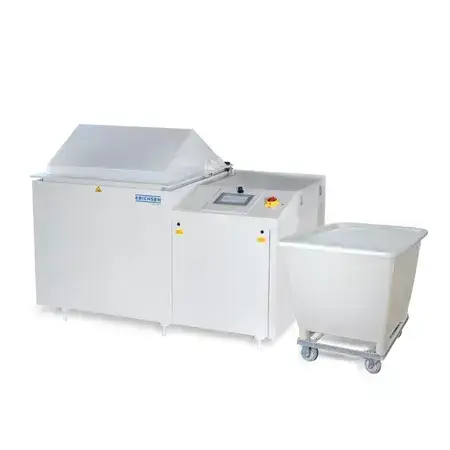LabroTek delivers state-of-the-art corrosion testing chambers and equipment designed to evaluate material resistance against various corrosive environments. Our comprehensive range of testing solutions supports critical applications across research, product development, manufacturing, and compliance verification.

Our salt spray testing equipment delivers reliable performance for standard and cyclic corrosion tests:
For corrosion testing under controlled temperature and humidity conditions:
Our specialists help you identify the ideal equipment for your specific applications and requirements
Professional setup and comprehensive operator training to ensure optimal performance from day one
Dedicated assistance throughout your equipment's service life, including troubleshooting and updates
Regular service programs to maintain accuracy, compliance, and maximize operational uptime
Our corrosion testing equipment represents industry-leading technology, providing:
Consistent test conditions for reproducible results
Multiple corrosion test methods in single or combined platforms
Precise regulation of test parameters and cycles
Comprehensive documentation of test conditions and results
Equipment designed to meet ISO, ASTM, DIN, JIS, and other international standards
Corrosion testing evaluates how materials and products resist degradation when exposed to corrosive environments. It's crucial for ensuring product durability, safety, and compliance with industry standards. By simulating real-world corrosive conditions in an accelerated timeframe, manufacturers can predict product lifespan and develop more resilient materials and coatings.
LabroTek provides equipment for a comprehensive range of corrosion tests, including Neutral Salt Spray (NSS), Copper-Accelerated Acetic Acid Salt Spray (CASS), Cyclic Corrosion Testing (CCT), Humidity testing, Kesternich testing (SO2), and customized test protocols. Our chambers support testing to international standards including ASTM B117, ISO 9227, JIS Z 2371, and many others.
The appropriate corrosion test depends on your product's end-use environment, industry standards, and specific material properties. Automotive components might require cyclic corrosion testing, while marine applications often need salt spray testing. LabroTek's technical specialists can help you select the most relevant test methodology based on your industry requirements and product specifications.
Chamber size depends on the dimensions and quantity of samples you need to test simultaneously. Consider not just your current testing volume but potential future needs. LabroTek offers corrosion chambers ranging from compact benchtop units to walk-in rooms, and our experts can help you determine the optimal size based on your specific testing requirements.
Most corrosion testing equipment should be calibrated at least annually to ensure accurate and consistent test conditions. However, the exact frequency may depend on your quality management system, industry requirements, and equipment usage intensity. LabroTek provides regular calibration services to ensure your equipment maintains compliance with relevant standards.
In many cases, yes. LabroTek can assess your current equipment and recommend upgrades or modifications to meet new testing standards or expand capabilities. From controller upgrades to adding cyclic functionality, we offer solutions to extend the useful life of your existing corrosion testing investment.
Regular maintenance includes cleaning salt deposits, checking spray nozzles, maintaining water quality systems, inspecting seals, calibrating controllers, and verifying proper drainage. LabroTek offers preventive maintenance programs that include all necessary inspections and service to ensure reliable operation and compliance with testing standards.
Test duration varies widely depending on the standard and material being evaluated. Basic salt spray tests might run for 24-1000 hours, while cyclic corrosion tests can range from several days to many weeks. LabroTek's equipment is designed for continuous, unattended operation to accommodate these extended test periods while maintaining precise environmental conditions.